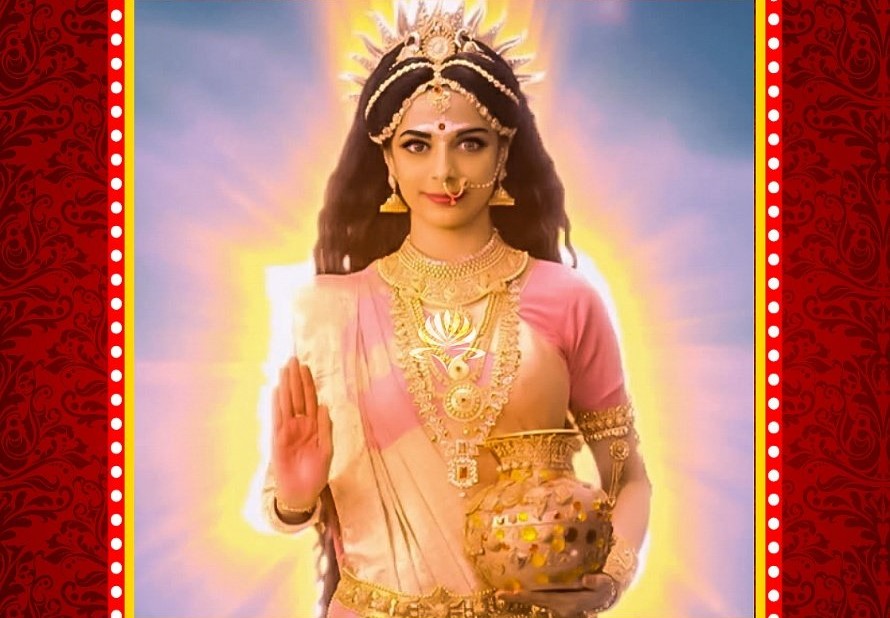Introduction
The celebration of Navratri, with its focus on different facets of the divine feminine, is a beautiful and spiritually enriching tradition. Each day of Navratri holds unique significance, On the fourth day of Navratri, you can worship Goddess Kushmanda. She is believed to be the creator of the universe and is associated with warmth and energy. Kushmanda is often depicted as having eight arms and riding a lion. It is customary to offer her flowers, fruits, and special sweets as offerings. Devotees seek her blessings for good health and strength.
Importance of Fourth Day (Chaturthi) Of Navratri
The fourth day of Navratri, known as Chaturthi, holds significant spiritual importance in Hindu tradition. Chaturthi during Navratri is an auspicious day dedicated to the worship of Goddess Kushmanda, symbolizing power, energy, and the nurturing aspect of the divine feminine. It’s a time for devotion, reflection, and communal celebration.
1. Worship of Kushmanda: On Chaturthi, devotees pay homage to Kushmanda, the fourth form of Goddess Durga. She is believed to have created the universe by her divine smile, giving light and energy to all beings. Worshipping her is a way to seek her blessings for prosperity, energy, and vitality.
2. Symbolism of the Color: Each day of Navratri is associated with a specific color. The color for Chaturthi is red, symbolizing power and action. Wearing or surrounding yourself with this color during the day is believed to harness the energy associated with this day.
3. Spiritual Significance: The nine nights of Navratri signify the battle between good and evil, with Durga representing the victory of righteousness over darkness. On Chaturthi, the energy is aligned towards sustaining the positive energy and nurturing it.
4. Prayers and Rituals: Devotees observe fasts and perform special rituals during Navratri. On Chaturthi, they offer prayers, light lamps, and incense, and sing devotional songs to seek the blessings of Kushmanda. It is a time for inner reflection, meditation, and seeking spiritual growth.
5. Community Celebrations: Navratri is a time for social gatherings, cultural dances, and music. People come together to celebrate the festival, fostering a sense of community and sharing the spiritual journey.
6. Opinions: While I don’t have personal beliefs or opinions, it’s important to acknowledge that the significance of each day during Navratri can vary among individuals and regions. The spiritual significance and practices may also differ slightly based on local traditions and beliefs.
Legend of Kushmanda:
Devi Kushmanda is one of the revered manifestations of the Hindu goddess Durga, celebrated during the festival of Navaratri. Her name, ‘Kushmanda,’ is derived from two words: ‘Ku,’ which means ‘a little,’ and ‘Ushma,’ meaning ‘warmth’ or ‘energy.’ Therefore, she is often referred to as the Goddess of Cosmic Energy or the Creator of the Universe. According to Hindu mythology, her birth story is captivating. It is said that in the beginning, the universe was enveloped in darkness and chaos. Devi Kushmanda, residing within the core of the sun, radiated a radiant light that brought light and energy to the cosmos, dispelling the darkness. Hence, she is depicted as holding the sun in one of her hands, symbolizing her role as the source of energy and the creator of the universe. This story of Kushmanda not only emphasizes her cosmic significance but also underlines the power of divine femininity in Hinduism. It symbolizes the birth of energy, the dispelling of darkness, and the beginning of creation in the universe. It emphasizes the importance of divine energy and the power of the Goddess in Hinduism.
Spiritual Practices and Vedic Rituals for the Fourth Day of Navratri:
Vedic practices can help you connect with the divine energy of Goddess Kushmanda and experience spiritual growth during Navratri. Here are some spiritual practices and Vedic rituals you can consider for Chaturthi of Navratri:
1. Morning Prayer and Meditation: Begin your day with a prayer and meditation to seek the blessings of Goddess Kushmanda. Focus on her qualities, which include creativity, sustenance, and radiance.
2. Offerings to the Goddess: Prepare offerings such as fruits, flowers, and sweets to present to the goddess during your puja (ritual worship). You can also offer a coconut as it is considered auspicious.
3. Recite Mantras: Chanting mantras dedicated to Goddess Kushmanda is a powerful way to connect with her. The Maa Kushmanda mantra is: “ॐ देवी कूष्माण्डायै नमः” (Om Devi Kushmandayai Namah).
4. Vedic Rituals: Consider performing a more elaborate Vedic ritual, which may involve performing aarti (a form of worship with lit lamps), reciting the Durga Chalisa, and offering Kumkum (vermilion) to the goddess.
5. Fasting: Many devotees choose to fast on Chaturthi as a form of penance and to purify the body and mind. You can break your fast in the evening with a simple meal.
6. Community Celebrations: Participate in local Navratri celebrations, which often include music, dance, and cultural events. It’s a great way to connect with a community of like-minded individuals.
7. Self-Reflection: Take some time for self-reflection during Navratri. Consider what you wish to create or sustain in your life, in alignment with the qualities of Goddess Kushmanda.
8. Charity and Service: Acts of kindness and charity are highly regarded during Navratri. You can contribute to the well-being of others as a way of seeking the goddess’s blessings.
Fasting and prayers during Navratri are a way to cleanse the body and mind and connect with the divine. It’s a beautiful tradition that allows individuals to focus on their spiritual journey. Remember that these practices can be adapted to your personal beliefs and comfort level. Please feel free to incorporate these rituals into your spiritual practice and adapt them as needed to align with your holistic and spiritual guidance approach. Is there anything specific you’d like to know or discuss regarding these rituals, or do you have any other questions related to spirituality or holistic health do not hesitate we are just a call away.
About Author

Spiritual Coach Anupriya is a seasoned holistic health coach based in Dehradun, India. With expertise in Astrology, Tarot Card Reading, Reiki Healing, and more, she guides seekers towards holistic well-being. Her profound knowledge in psychology enhances her mission of offering spiritual guidance and healing to those in need. She’s the founder of DISHA Academy which is part of Divine Instrument.




